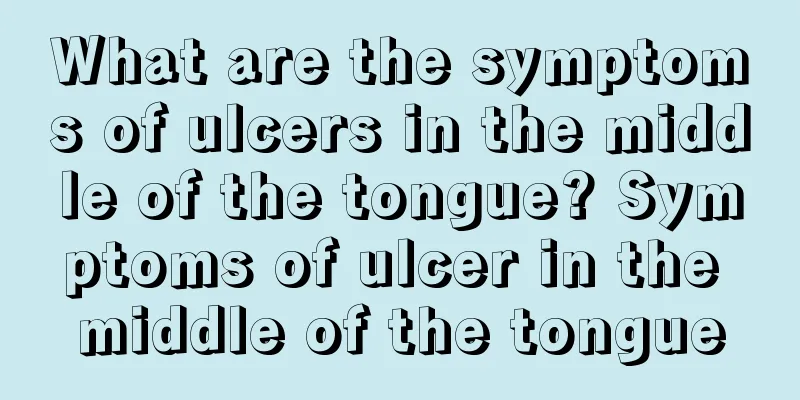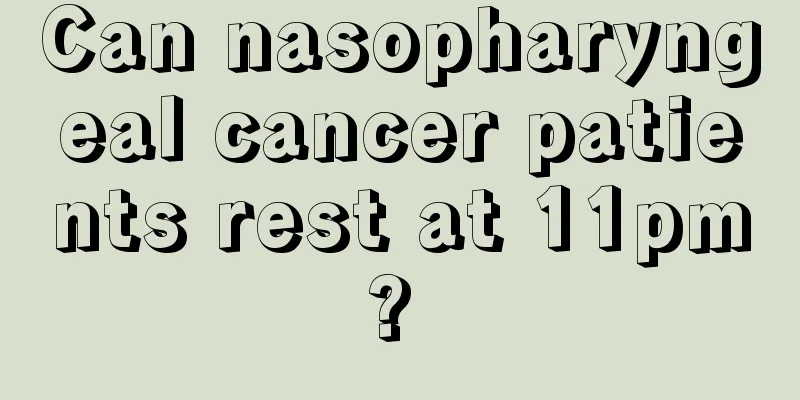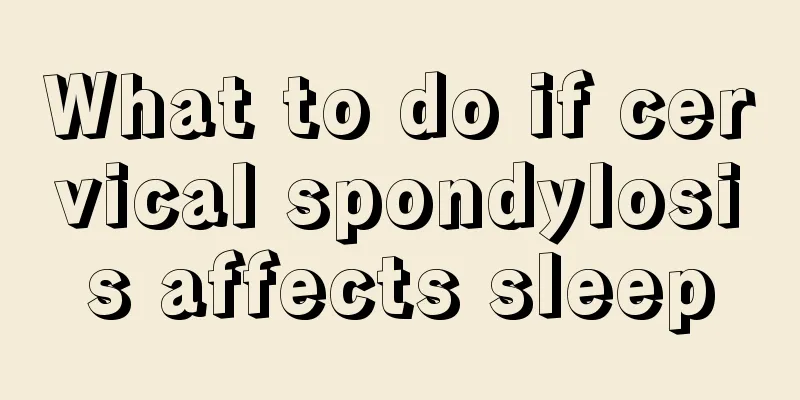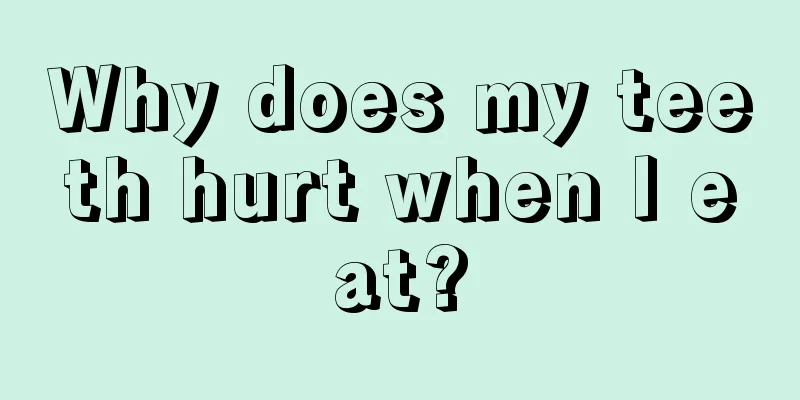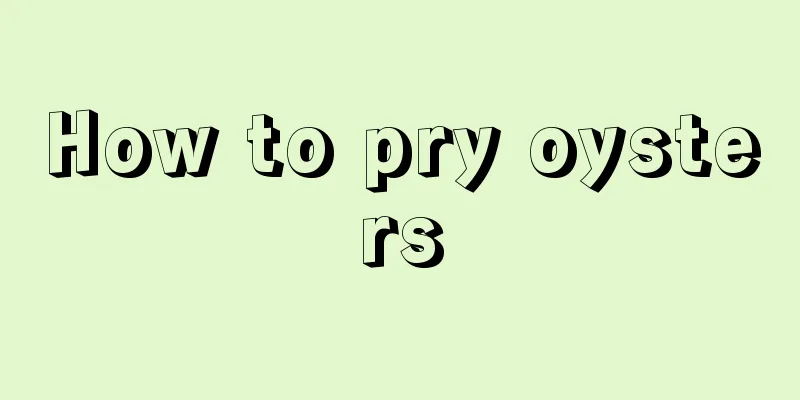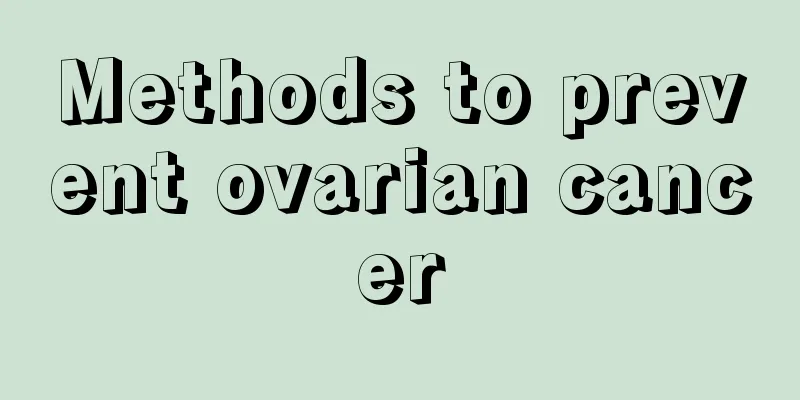What should I do if my mouth suddenly can’t open wide

|
When we eat daily, we need our mouth to chew. But sometimes we find that we suddenly can’t open our mouths. This situation has a lot to do with our jaw joint. Generally speaking, if your mouth suddenly cannot open wide, it may be caused by temporomandibular joint disorder syndrome. What should we do if we suffer from this disease? Let’s look at the treatment methods below. Diagnosis and treatment of temporomandibular joint disorder syndrome The main functions of the temporomandibular joint are to participate in chewing, pronunciation, swallowing and facial expression. Temporomandibular joint disorder syndrome is one of the common diseases in the oral and maxillofacial region. It is common in young and middle-aged people, with the highest incidence rate among those aged 20 to 35 years. It usually occurs on one side, but sometimes it can gradually affect both sides. Temporomandibular joint disorder syndrome generally has a long course of illness and often recurs. It is mostly a functional disorder, but may also involve joint structure disorder or organic damage, so it should be taken seriously and treated early. 1. Principles of prevention and treatment (1) Conservative treatment is the main approach, using a combination of symptomatic treatment and elimination or weakening of pathogenic factors. (2) While treating local joint symptoms, the overall condition and mental state of the patient should be improved. (3) Provide medical knowledge education to patients so that they understand the nature and causes of the disease, increase their confidence, cooperate with the doctor's treatment, and perform self-treatment and self-protection of joints under the doctor's guidance. (4) Take a step-by-step approach and determine a reasonable treatment plan. 2. The current treatments include: (1) Medication: Commonly used are indomethacin, tablets, each tablet is 25 mg, 25 mg each time, 3 times a day, 5 consecutive days as a course of treatment; diazepam, tablets, each tablet is 2.5 mg, 2.5-5 mg each time, 3 times a day, 5 consecutive days as a course of treatment. (2) Physical therapy: Local infrared irradiation or helium-neon laser irradiation can be used, 20 minutes each time, once a day, and one week of continuous irradiation as a course of treatment. (3) Magnet therapy: Suitable for home treatment. Patients can apply magnet sheets to the most obvious pain points. It is easy to use and has a good analgesic effect. It is often used to treat pain and limited mouth opening in this disease. It also has a certain effect on relieving joint clicking. (4) Other methods include blockade therapy, adjustment, orthodontic correction, etc. If there are obvious surgical indications, surgical treatment can also be used. 3. Treatment points (1) Hyperfunction of the lateral pterygoid muscle: The main purpose is to adjust the function of the lateral pterygoid muscle. 5 ml of 0.5% or 1% procaine can be used for lateral pterygoid muscle blockade, once a day, 5 to 7 times as a course of treatment. (2) Lateral pterygoid muscle spasm: mainly to relieve muscle spasm. ①Physical therapy: 15% calcium chloride solution can be used to introduce calcium ions into the joint area and chewing area on both sides, once a day, 7 to 10 times as a course of treatment; ②Blocking therapy: Use 2% procaine 2 to 3 ml to block the lateral pterygoid muscle, once a day or every other day, 5 times as a course of treatment. If there is no significant improvement in pain, blockade therapy should be abandoned. ③ Local hot compresses, medicine cupping, and massage with traditional Chinese medicine also have certain therapeutic effects. (3) Spasm of the masticatory muscles: The treatment is the same as that of lateral pterygoid muscle spasm, but gentle physical therapy is preferred. Sedatives and muscle relaxants, such as diazepam and enteric-coated aspirin, can be taken at the same time. (4) Reducible anterior disc displacement: Patients in the early stage of snapping can be treated with a reduction plate. If the anterior displacement of the disc is obvious and cannot be treated with a plate, disc reduction surgery can be performed. (5) Irreversible anterior disc displacement: First, manual reduction can be used, using the same method as the manual reduction method for acute anterior dislocation of the joint. If the reduction is successful, a popping sound can be heard, and then the treatment for reducible anterior disc displacement can be continued. If the joint cannot be reduced by manipulation, a pivot plate can be worn, and in severe cases, a disc reduction surgery can be performed. (6) Perforation and rupture of the articular disc: Comprehensive treatment with conservative treatment as the main approach should be followed in accordance with procedures. If comprehensive treatment is ineffective, disc repair or disc removal will be considered depending on the condition. |
<<: Hard thorns grow next to the nails
>>: I can't open my mouth and it hurts on one side
Recommend
Is it good to wash your face with white vinegar?
People wash their faces every day in their lives....
Will poor digestion cause weight gain? Tell you at 4 o'clock
Poor digestion is very common. It may be due to d...
What are the danger signs of rectal cancer
In recent years, rectal cancer has become one of ...
What is Magnolia Root
Magnolia root is a kind of herb, and this plant h...
What is the principle of red and blue light treatment for acne?
Acne, also known as pimples, is common in adolesc...
What medicine is effective for rosacea?
People deal with various diseases in life. Many d...
The names and effects of various wild vegetables
Nowadays, more and more people like wild vegetabl...
What should I do if my nose bleeds?
Picking the nose with hands is a very bad habit f...
What is the cost of gallbladder cancer treatment
How much does it cost to treat gallbladder cancer...
What to do if thighs are rubbed
Many people feel that their thigh roots are rubbe...
What to do if you are tired of studying in the third year of junior high school
Everyone says that the high school entrance exami...
Fat girls should be careful about endometrial cancer. What tests should be done to prevent endometrial cancer?
As one of the three most common tumors in the fem...
Is the cost of treating pituitary tumors high?
We all know that it costs money to see a doctor, ...
How to fix the dough being too wet
The steamed buns we usually eat are made after th...
How much does it cost to cure nasopharyngeal cancer
There are many treatments for nasopharyngeal canc...

